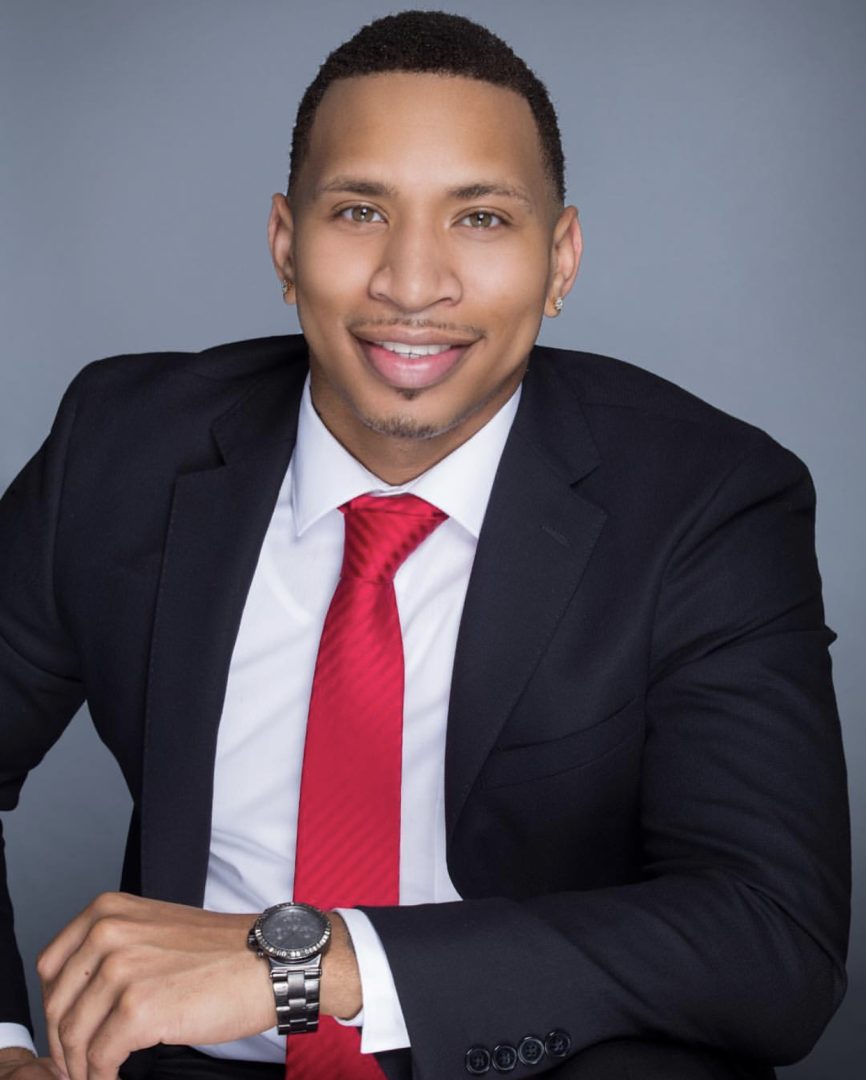In the fast-paced world of Atlanta luxury real estate, one name stands above the rest. Trey Williams has mastered the art of connecting high-profile clients with their dream homes, earning the trust of celebrities like T.I., Lil Yachty, and Young Thug. His secret? A unique blend of authentic relationship building and cutting-edge market innovation.
As founder of Maybach Conversations and a leading voice in Atlanta’s luxury market, Williams brings more than just property listings to the table. He’s reshaping how real estate professionals approach everything from market intelligence to client relationships. In this exclusive interview, he opens up about the strategies that have transformed him from agent to trusted advisor, sharing insights that have helped him build one of Atlanta’s most distinctive real estate practices.
The modern real estate professional must possess distinct “superpowers” to drive success. What are your unique professional gifts, and how have they transformed your practice and local market?
One of my most significant professional gifts is my ability to connect with people on a personal level and understand their unique needs. Whether I’m working with clients or fellow professionals, I focus on building relationships rooted in trust and transparency. This personalized approach has helped me grow my practice by ensuring that each client receives the attention they deserve. My clients know they can count on me for honest guidance, and over the years, I’ve become a go-to resource for advice in real estate. Another key gift is my strategic thinking, which allows me to identify market opportunities others may miss. By combining these personal gifts with a strong work ethic, I’ve been able to stay ahead of local trends and drive success in both residential and commercial real estate markets. These qualities have allowed me to significantly impact the local market, making it more accessible to first-time buyers, investors, and business owners alike.
How do you navigate the challenges of fluctuating interest rates while maintaining strong deal flow? Share your strategies for client education and transaction success during market shifts.
Fluctuating interest rates can create uncertainty for both buyers and sellers, but I view these shifts as an opportunity to demonstrate my expertise and provide valuable education. I make sure my clients fully understand the implications of interest rate changes on their purchasing power and overall investment. When rates increase, I encourage buyers to explore different financing options, such as adjustable-rate mortgages or government-backed loans, to find the most suitable solutions for their situation. During times of market uncertainty, I also reinforce the long-term benefits of real estate, showing clients how property values tend to appreciate over time, regardless of short-term interest rate fluctuations. In addition, I educate clients on market timing and leverage, allowing them to make informed decisions while keeping their investment goals intact. This proactive approach not only helps my clients navigate challenges but also maintains strong deal flow, as they feel confident in their decisions.
Describe your process for building and maintaining relationships with lending partners. How have you developed a robust financing pipeline that serves diverse client needs?
Building lasting relationships with lending partners is integral to my success. I take a collaborative approach, understanding that a strong partnership is based on mutual trust, transparency, and clear communication. From the moment I meet a new lender, I ensure that we are aligned in our goals: providing the best financing options for my clients. I maintain regular contact with my lending partners to stay updated on available loan products, interest rates, and any changes in lending policies that could affect my clients. This proactive communication helps me stay ahead of the curve and ensures that I’m always in a position to provide my clients with the most current and competitive financing options. Over time, I’ve developed a robust financing pipeline by strategically diversifying my relationships with lenders who specialize in various types of loans, from conventional and FHA loans to jumbo loans and commercial financing. This ensures that I can meet the needs of all clients, regardless of their financial situation or property type.
Describe your team composition and key partnerships. How have you strategically built your professional network to include developers, lenders, and other crucial stakeholders?
My team consists of a diverse group of professionals who bring a wealth of knowledge and expertise to the table. Each team member plays a vital role in ensuring that our clients receive the best possible service, from experienced real estate agents to skilled administrative and marketing staff. I also work closely with a network of trusted partners, including developers, lenders, contractors, inspectors, and other real estate professionals. Over the years, I’ve built these partnerships by focusing on quality relationships and shared values. I attend industry events, participate in networking groups, and seek out strategic collaborations with key players in the real estate sector. By staying engaged in the community and offering valuable insights, I’ve cultivated a professional network that supports my business and my clients. These relationships have enabled me to offer clients everything from exclusive off-market listings to customized financing solutions, ensuring that they have access to the best opportunities available.
Tell us about your approach to developer relationships. How do you establish yourself as a valuable partner in new development projects, and what strategies secure you early access to upcoming opportunities?
Establishing strong developer relationships is an essential part of my business. I approach these relationships with a focus on long-term collaboration and a shared goal of mutual success. I take the time to understand developers’ objectives, timelines, and challenges, which helps me tailor my approach and offer valuable input on how I can contribute to their projects. By demonstrating my market knowledge and sales expertise, I’ve positioned myself as a trusted advisor to developers looking to bring new properties to market. I secure early access to new opportunities by maintaining consistent communication with developers and offering marketing strategies that boost the visibility of their projects. I also ensure that developers see me as an extension of their team, providing them with insights on local market trends, buyer preferences, and how to price properties for maximum profitability. My ability to offer developers strategic advice and actionable solutions has allowed me to gain early access to some of the most lucrative development opportunities in the area.
Share three critical insights you wish you had known before entering real estate. How would these insights have changed your early approach to the business?
The first insight I wish I had known earlier is the importance of developing a strong personal brand from the start. Building a reputation as a trusted expert early on would have helped me attract clients more quickly and build credibility in a competitive market. The second lesson is the power of collaboration. Early in my career, I tried to do everything myself, but I quickly learned that working with other professionals—lenders, inspectors, contractors—was essential for delivering a seamless experience for my clients. The third insight would be the importance of continuous learning. Real estate is constantly evolving, and staying up-to-date on market trends, technology, and industry regulations has been key to my success. If I had embraced a mindset of continuous growth earlier, I could have accelerated my business development and avoided many of the mistakes I made early in my career.
Describe your approach to proptech integration and digital advancement. How do you balance innovation with traditional relationship-building?
I am a firm believer in the power of technology to enhance the real estate experience. Proptech solutions, such as virtual tours, CRM systems, and digital marketing platforms, help me operate more efficiently and provide better service to my clients. My approach to integrating technology is thoughtful and strategic—I adopt tools that add value and improve the overall client experience. For example, I use advanced analytics to help clients make data-driven decisions about property investments. However, I also recognize that real estate is a people business, and technology should never replace the personal relationships that drive success. I balance innovation with relationship-building by using technology to enhance communication, streamline processes, and offer clients more information, while maintaining a high level of personal engagement. Whether it’s through face-to-face meetings, phone calls, or personalized messages, I ensure that technology supplements rather than replaces the essential human connection in my work.
What emerging real estate competencies do you see becoming critical in the next decade? How are you preparing yourself and your team for these shifts?
As the real estate industry continues to evolve, I see sustainability and green building practices becoming increasingly important. Buyers are becoming more conscious of the environmental impact of their homes and commercial spaces, and developers are incorporating eco-friendly features into their projects to meet this demand. To prepare for these shifts, I’ve started learning more about sustainable building materials, energy-efficient technologies, and eco-friendly certifications. Another emerging competency is the use of artificial intelligence and big data to analyze market trends and predict future opportunities. I’m ensuring my team is trained in these areas, as these technologies will play a pivotal role in making more informed, data-driven decisions. Finally, I believe that the integration of virtual and augmented reality will revolutionize property showings and marketing, allowing clients to explore homes and developments in ways that were previously unimaginable. I’m staying ahead of these trends by investing in new technology and making sure my team is fully equipped to leverage these tools effectively.
What role does market intelligence play in your business strategy? How do you foster informed decision-making at all levels?
Market intelligence plays a crucial role in my business strategy. I rely heavily on up-to-date data, including sales trends, property values, and demographic shifts, to guide my decision-making and provide my clients with the most accurate and actionable information. I also encourage my team to use market intelligence as the foundation for all client recommendations, ensuring that we are always making decisions that are backed by solid data. By fostering a culture of informed decision-making, we are able to offer clients well-researched advice and stay ahead of market trends. In addition, I make sure that my clients are always well-informed, offering them market reports, property analysis, and expert opinions to help them make educated decisions. This commitment to market intelligence allows us to maintain a competitive edge and deliver consistent results for our clients.
How do you measure success beyond transaction volume? What legacy do you hope to leave in your market?
Success in real estate is about more than just the number of transactions closed. I measure success by the long-term relationships I build and the positive impact I have on my clients’ lives. I take pride in knowing that my clients trust me to guide them through one of the most significant financial decisions of their lives. My success is reflected in their satisfaction and the referrals they send my way. I also measure success by how I contribute to the community—whether through supporting local businesses, participating in charitable efforts, or being a role model for others in the industry. As for my legacy, I hope to be remembered as someone who made real estate accessible to everyone, regardless of their background. I want to leave a lasting impact by empowering individuals and families to create wealth through real estate, fostering a sense of stability and financial security that transcends generations.
Looking forward, what unprecedented opportunities do you see for real estate professionals to reshape communities and create generational wealth?
Real estate professionals have a unique opportunity to reshape communities by focusing on inclusivity, sustainability, and long-term development. As affordable housing becomes more of a priority, there is an opportunity to partner with local governments and developers to create communities that are both livable and sustainable. I also see a growing opportunity for real estate professionals to educate clients about building wealth through investment properties, offering them tools and knowledge to grow their portfolios and secure their financial futures. By introducing the concept of generational wealth to younger generations, real estate professionals can help them leverage property ownership as a tool for wealth accumulation. Additionally, as we see a push for green building practices, real estate professionals can become leaders in promoting eco-friendly developments that benefit both people and the planet, while also providing strong returns on investment.
Share your most significant leadership challenge and how overcoming it transformed your business approach. What lessons can others learn from your experience?
One of my most significant leadership challenges was learning how to transition from a hands-on approach to a more delegatory style of leadership. Early on, I was involved in every aspect of the business—from client meetings to contract negotiations—which, while effective in the short term, became unsustainable as my business grew. The turning point came when I realized that I had to empower my team to take ownership of their roles and trust them to make decisions independently. Overcoming this challenge transformed my business by fostering a collaborative and efficient work environment where each team member was able to contribute their strengths. By embracing delegation and focusing on high-level strategy rather than day-to-day tasks, I was able to scale my business, increase productivity, and improve client satisfaction. The key lesson I learned was that leadership is not about doing everything yourself; it’s about empowering others and trusting them to perform at their best. This has allowed me to focus on growing the business while ensuring my team feels valued and motivated to contribute.


















